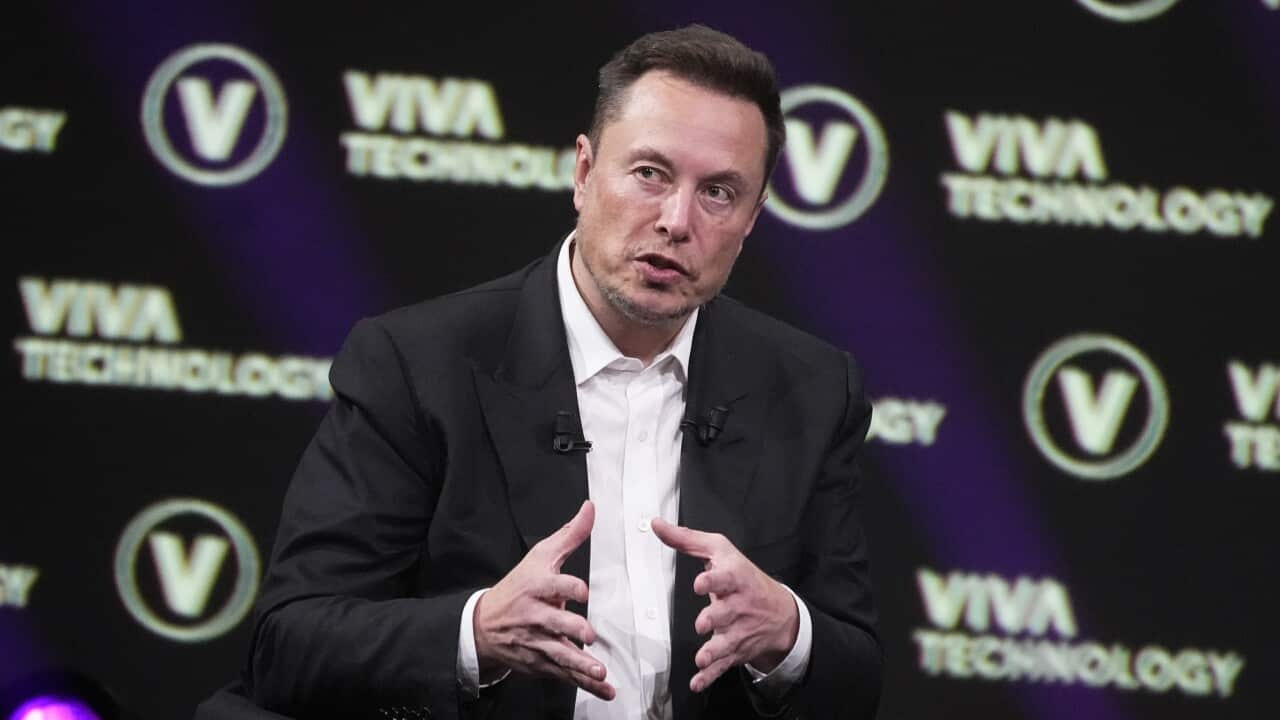Key Points
- The word cisgender refers to someone whose identity is the same as their gender at birth.
- The word was introduced to mean the opposite of transgender.
- Twitter has been accused of failing to deal with online hate.
The word cisgender is not a slur, but Twitter owner Elon Musk has said it will be considered one on the platform.
Mr Musk's comments come as online hate has massively increased on the platform, particularly against LGBTIQ+ and Indigenous communities, Australia's cyber watchdog said.
"Repeated, targeted harassment against any account will cause the harassing accounts to receive, at minimum, temporary suspensions," Mr Musk wrote on Twitter in response to another user complaining about receiving hate from transgender people.
"The words 'cis' or 'cisgender' are considered slurs on this platform".

Source: Twitter
Ghassan Kassisieh is the legal director at Equality Australia, which works to protect the rights of LGBTIQ+ people. He explained to SBS News, "A cisgender person is someone whose gender identity matches their sex assigned at birth".
Its prefix 'cis' is Latin and translates to 'on this side', as opposed to 'trans' which means 'on the other side' or 'across from'.
Mr Kassisieh said the words are "neutral adjectives that are used to describe different types of people without judgement".
"Cisgender is an objective descriptor which simply means the opposite of transgender, in the same way as young is the opposite of old or straight is the opposite of gay," he said.
Twitter threatened with big fines over 'absolute binfire' of abuse
The federal government's eSafety Commission has sent a legal notice to Twitter demanding an explanation after one-third of all complaints it received about online hate concerned the platform.
If Twitter fails to respond to the commission's request within 28 days, the company could face maximum financial penalties of nearly $700,000 a day for continuing breaches.
eSafety Commissioner Julie Inman Grant says there have been more complaints about online hate on Twitter in the past year than any other platform and complaints have spiked since Elon Musk's takeover of the company in October.
"We are seeing a worrying surge in hate online," Ms Inman Grant said in a statement on Thursday.
"Twitter appears to have dropped the ball on tackling hate."

eSafety Commissioner Julie Inman Grant has threatened Twitter with large fines if it does not deal with online hate. Source: AAP / Mick Tsikas
Research from the commission showed nearly one in five Australians had experienced some form of online hate.
"This level of online abuse is already inexcusably high, but if you're a First Nations Australian, you are disabled or identify as LGBTIQ+ you experience online hate at double the rate of the rest of the population," Ms Inman Grant said.
Mr Kassisieh said, "Many LGBTIQ+ people, particularly trans people, face daily harassment and abuse online simply for being who they are."
"Everyone deserves to participate in online spaces with dignity and respect."
The rise in complaints coincides with a slashing of Twitter's global workforce from 8,000 to 1,500, including in its trust and safety teams, coupled with ending its public policy presence in Australia.
A general amnesty was announced by Musk in November, which reportedly saw 62,000 banned or suspended users reinstated to the platform, including 75 accounts with more than 1 million followers.
The return of the "worst of the worst" accounts had resulted in an "outsized impact on toxicity" on Twitter, the commissioner told the ABC.
"Twitter has always been fiery in terms of discourse, but it’s turned into an absolute bin fire," she said.
Last month, US advocacy group GLAAD designated Twitter as the most hateful platform towards the LGBTIQ+ community.










